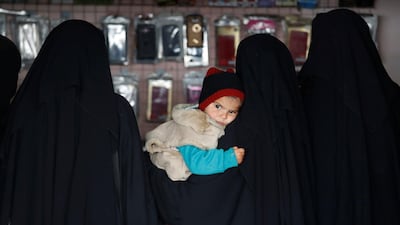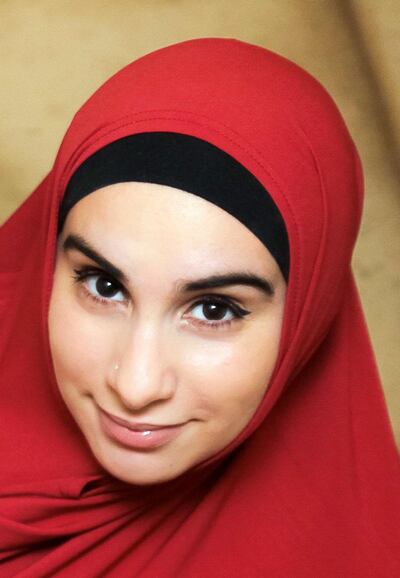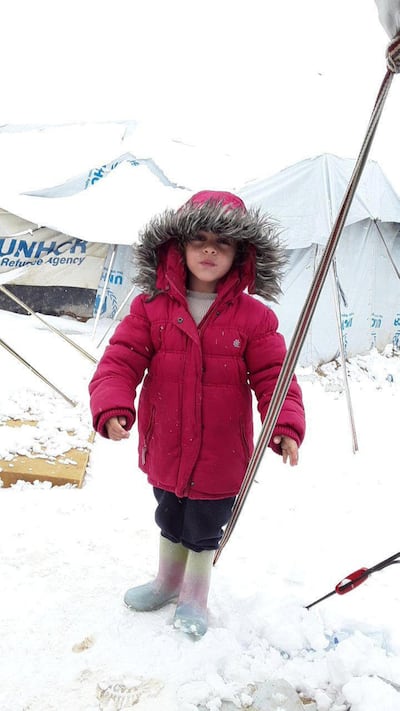Mariam Dabboussy married Kaled Zahab, her high-school sweetheart, soon after she turned 18. The third-generation Australian was born and raised in Sydney and worked at a migrant support service and in childcare. Within six years of getting married Mariam was in Syria and her husband was in an ISIS training camp.
It was mid-2015 when the couple went on holiday, travelling through Malaysia, Lebanon, Dubai and Turkey. Then, her father Kamalle Dabboussy told The National, Zahab insisted they go to the Syrian border to help his sister flee the war.
Instead of helping his sister leave, Mariam and Zahab’s parents were forced to cross the border themselves.
Mr Dabboussy says he was contacted in mid-2015 by Australian authorities who told him Mariam had been “coerced” into entering Syria, an account of events supported by Aminah Zahab, Mariam’s then mother-in-law.
“They told me she had been coerced to enter Syria. Her husband also took his parents into Syria… Not every story is the same… In many cases there were family links, there were misrepresentations.”
The man responsible was Zahab’s older brother, Muhammad Zahab, who was considered by authorities to be the most senior Australian member of ISIS. He was heavily involved in bringing Australian recruits to join the militant group into Syria.
On arrival, Kaled Zahab was quickly taken away to an ISIS training camp. Within three months he was dead, killed in an air strike on the camp. Mariam was nine months pregnant with their second child at the time.
"She tried to escape," Mr Dabboussy told The National. "But she was caught, and forced to marry an ISIS fighter." Her second husband, with whom Mariam had her third child, was also killed fighting and she was forced to marry again.
After marrying for the second time, she was unable to contact her family in Australia for 17 months. “I didn’t know if she was alive or dead. I started grief counselling… When I heard her voice for the first time after that, I collapsed,” said Mr Dabboussy.
Today, Mariam is one of 19 Australian women and 47 children being held in Al Hol camp in northern Syria. Eleven of them are believed to be related to Muhammad Zahab by blood or marriage.
There is one other woman in the camp who had her Australian citizenship revoked.
Mr Dabboussy was able to visit Mariam and his grandchildren in the Al Hol camp in August.
"I have worked in foreign aid before and seen refugee camps," he told The National. "This is not a refugee camp, it is a concentration camp."
Earlier this month, the Australian Federal Police issued arrest warrants for 42 Australians accused of supporting or fighting for ISIS. This included women held in the camp.
A spokesperson for the Federal Police said all Australians believed to have travelled to the conflict zone are under investigation and they will consider all relevant offences capable of prosecution in Australia.
Human rights advocates, foreign policy experts and some opposition legislators in Australia are calling for the government to repatriate the women and children from the camp.
More than 70,000 women and children are now detained in Al Hol, which was formed to house the stream of people who fled the frontlines of ISIS’s final stand in the small, dusty desert town of Baghouz in eastern Syria in April 2018.
Some of the camp occupants are Syrian and Iraqi nationals, but most are foreigners drawn to the conflict. Though nearly half of those in the camp are children, they are all now accused of being linked to ISIS.
Internationally-backed Kurdish forces administer the facility but they say resources are stretched and the countries linked to the occupants need to do more – including repatriating their nationals.
In October, two Australian women in the camp sent audio messages to the Australian government asking for help as the Syrian army advanced towards the camp.
“We understand the world has hate but we're asking just as regretful humans, don't let us fall into the hands of the regime, please,” a mother of two young children said in one of the messages as she wept.
In November, Australian Prime Minister Scott Morrison rejected an offer made by the United States to repatriate the Australians a month after Defence Minister Linda Reynolds said the government would not “jeopardise the lives of any other Australians”.
Mark Beeson, an international politics professor at the University of Western Australia, said that authorities should do “what they can” to move their nationals out of the area. “The continued refusal to help when someone else is doing the heavy-lifting looks mean-spirited and vindictive,” he said.
He also pointed out that the charges against the women were not for violent offences but for “material support”. This, he says, is very broadly defined and could entail things like cooking meals for the group.
Professor Beeson added that the children are not to blame for their situation, and it “wouldn't be too hard” for authorities to monitor the women if they were repatriated to Australia.
Mariam, who holds no other nationality, has three children: A girl aged five named Aisha, a boy aged three, and a girl aged two named Fatema. Of the 47 Australian children in the camp, 34 or under the age of five.
Mr Dabboussy gave a grim account of life inside Al Hol.
“There is no clean running water, they are using plastic bags as toilets, there are food shortages, there is limited kerosene for heating in winter, two children die every day from malnutrition or preventable diseases – the Red Crescent reported this. There is the threat from extremist women inside the camp. There is a threat to health from contaminated food," he said.
“It is snowing there now. The conditions are tough. It can go from 50-plus degrees in summer to minus-8 at night. We have children with injuries and disease who can’t get medical care. They are missing their education, they are missing out on their future.”
But escaping was impossible for Mariam and her children, he said.
Mr Dabboussy wants to see the government take responsibility and return the women and children, including Mariam, "whether that means bringing them back to Australia or to a third location.”
“I think the first obligation is to make them safe. There are 67 women and children in there… Some of those women were children themselves when they were taken into Syria. There’s a 19-year-old woman with four children," he says.
"The Australian government says they want to assess them, there is no reason that can’t be done at a third location that is safe. How long do these assessments take? Australia has an excellent judicial and security system. Is it unable to cater for 20 women and 47 children?”
Mr Dabboussy continues to hope and to do what he can to help his daughter and his grandchildren, as well as the other children trapped in the camp.
“The children, regardless of what you think of the women, need to be taken out of harm’s way.”




